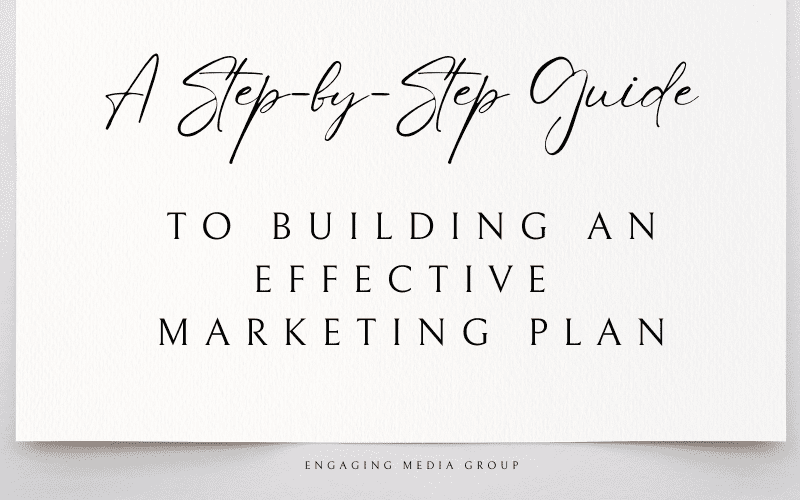Crafting an effective marketing plan is a crucial undertaking for businesses seeking to thrive in today’s competitive landscape. With numerous marketing channels, strategies, and tools available, it can be overwhelming to navigate the process of building a comprehensive plan. This blog post serves as a step-by-step guide to help you demystify the process and create an impactful marketing plan. By following these systematic steps, you will gain clarity, focus, and direction to maximize your marketing efforts and achieve your business objectives. Whether you’re a startup, small business, or established enterprise, this guide will provide you with the essential framework to build a robust and effective marketing plan that drives growth and success.
Step-by-Step Guide
-
- Set Clear Objectives: Start by defining your marketing objectives. What do you want to achieve? Whether it’s increasing brand awareness, driving website traffic, generating leads, or boosting sales, clearly outline your goals to guide your marketing efforts.
- Understand Your Target Audience: Conduct thorough market research to identify and understand your target audience. Define their demographics, psychographics, needs, and preferences. This information will help you tailor your marketing messages and select the most appropriate channels to reach your audience.
- Conduct a SWOT Analysis: Perform a comprehensive analysis of your business’s strengths, weaknesses, opportunities, and threats (SWOT). Assess your internal capabilities, competitive landscape, market trends, and potential opportunities to gain insights into your business’s position in the market.
- Define Your Value Proposition: Determine your unique selling proposition (USP) or value proposition. What sets your products or services apart from the competition? Clearly articulate the benefits and value you offer to customers, which will form the foundation of your marketing messaging.
- Develop Marketing Strategies and Tactics: Based on your objectives, target audience, and market analysis, devise marketing strategies and tactics to achieve your goals. Consider a mix of both online and offline marketing channels, such as digital advertising, content marketing, social media, print advertising, events, public relations, and more. Align your strategies with your target audience’s preferences and the channels that will best reach them.
- Set a Budget: Determine your marketing budget and allocate resources to various marketing activities. Consider the cost of advertising, content creation, marketing tools, events, and any other initiatives. Ensure your budget aligns with your objectives and allows for a balanced approach across different channels.
- Develop a Content Plan: Content is at the core of modern marketing. Create a content plan that outlines the types of content you will produce (blog posts, videos, infographics, etc.), the topics you will cover, the channels you will use to distribute content, and the frequency of publication. Plan for content that aligns with your target audience’s interests and addresses their pain points.
- Implement Tracking and Measurement: Set up tracking mechanisms to measure the effectiveness of your marketing efforts. Utilize analytics tools, such as Google Analytics, to monitor website traffic, conversion rates, and other key performance indicators (KPIs) specific to your objectives. Regularly analyze data to gain insights, identify trends, and make data-driven decisions to optimize your marketing strategies.
- Create a Timeline and Action Plan: Develop a timeline that outlines the specific activities, deadlines, and responsible parties for each marketing initiative. Break down your marketing plan into actionable steps, ensuring clear accountability and efficient execution.
- Review and Adapt: Regularly review the performance of your marketing plan. Assess the effectiveness of each marketing activity, track progress towards your objectives, and make adjustments as needed. Stay agile and adapt your strategies based on market trends, customer feedback, and evolving business goals.
- Seek Professional Guidance: If needed, consider consulting with a marketing professional or agency to guide you through the planning process, provide expertise, and help execute your marketing initiatives effectively.
Remember, a marketing plan is a living document that should be regularly reviewed, updated, and adjusted based on market conditions and business needs. By following these steps, you can build a solid marketing plan that aligns with your objectives, effectively reaches your target audience, and drives the growth and success of your business.

